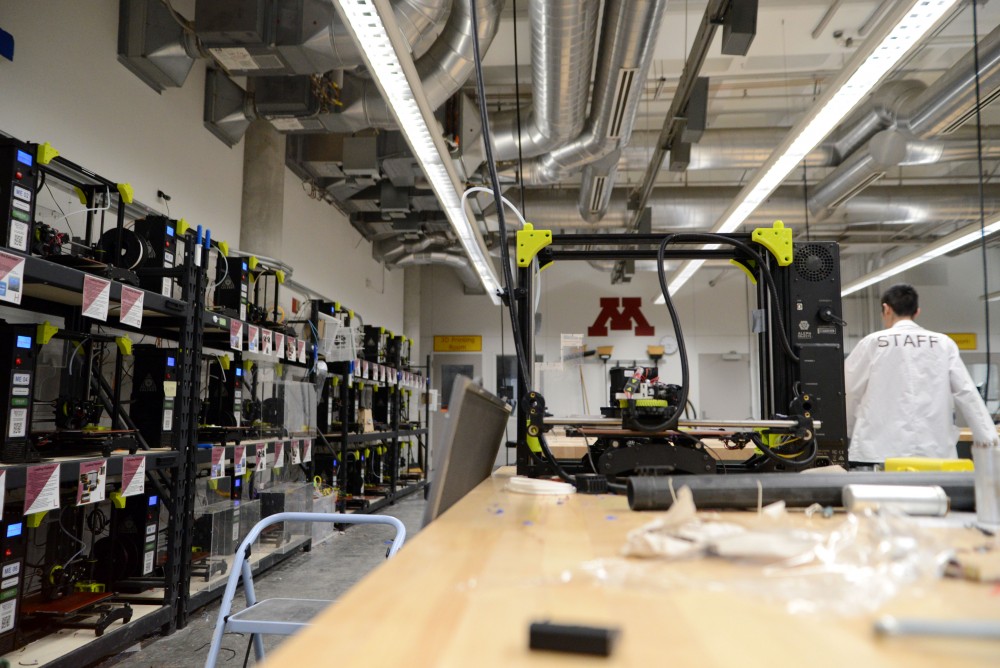From sewing machines to 3D printers, makerspaces at the University of Minnesota provide students with a vast array of opportunities for creation and collaboration, and the Minnesota Student Association is pushing to make them available to more students.
Makerspaces are workshops that provide tools and equipment used to build projects and encourage hands-on learning. MSA drafted a resolution showing its support for makerspaces on campus, and suggesting the University make them accessible to all students. The resolution also asks the University to form a committee dedicated to funding makerspaces that are unrestricted by school or major.
MSA At-Large Representative Kate Kuehl said she hopes it will help garner awareness for makerspaces, which are often underutilized by students.
Kuehl emphasized benefits of the spaces and said hands-on projects can help with stress-relief.
“I really love the makerspace movement because it basically says sewing and welding are [both] valid forms of making,” Kuehl said. She added that many people often think sewing and welding are specific to a certain gender.
Tesla Works is a student group that frequently uses the Exceed Lab makerspace in Keller Hall to collaborate on projects, and is a co-sponsor of the MSA resolution. Group President Laura Ziegelski emphasized the benefits of including students from different majors and schools in projects.
“We strive to be as inclusive as possible to students who aren’t just in the College of Science and Engineering because we think that being able to build things … shouldn’t be limited to your major,” she said.

Kevin Groenke, College of Design fabrication manager, said the College of Design supports increasing accessibility of campus makerspaces, but that the college’s current makerspace should be used primarily by students within the school who are using it for coursework.
“Those are the students who are paying for the resources to exist,” he said.
Groenke also brought up potential legal concerns, saying the University’s Office of Risk Management discourages students from using the facilities outside of coursework to avoid liability.
Certain tools within some makerspaces require special safety training, and some spaces require key card access in order to ensure safe usage of the lab equipment.
Some makerspaces, such as Breakerspace in Walter Library, are already open to the entire student body.
Kuehl said the resolution asks for more universal standards for safety training so safety certifications from one lab can carry over to another. This gives students more freedom and access to makerspaces across campus.
David Schmidt, a faculty member in the Department of Bioproducts and Biosystems Engineering, manages a small BBE makerspace. He said he supports the idea of accessibility but worries about financing the expansion of these spaces.
“I am a huge advocate for makerspace or students learning how to make stuff. The problem is the funding and source of funding,” he said. “They’re expensive to manage, … I think that’s the biggest challenge.”
Ben Guengerich, the Anderson Student Innovation labs manager, said he has always wanted to push for more openness in University makerspaces, but he understands the hesitation to do so.
Guengerich said many lab managers are receptive to opening the spaces up, but are cautious due to concerns about potential overcrowding and safety issues.
“If there’s tons and tons of people in there and you don’t have the capacity to train people to use things safely, then that’s a problem,” he said.
The MSA resolution will be presented at an upcoming forum meeting.








